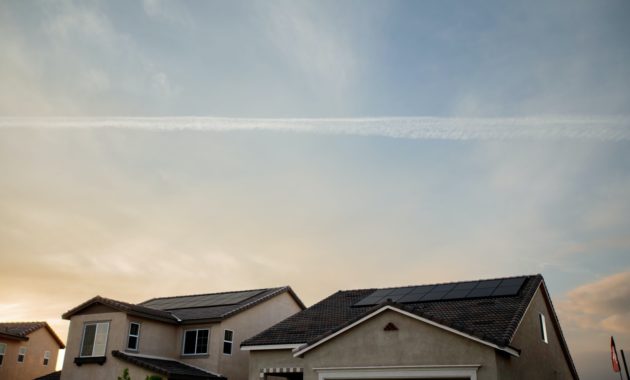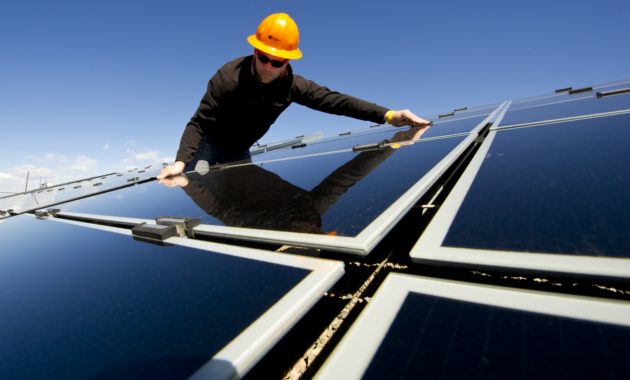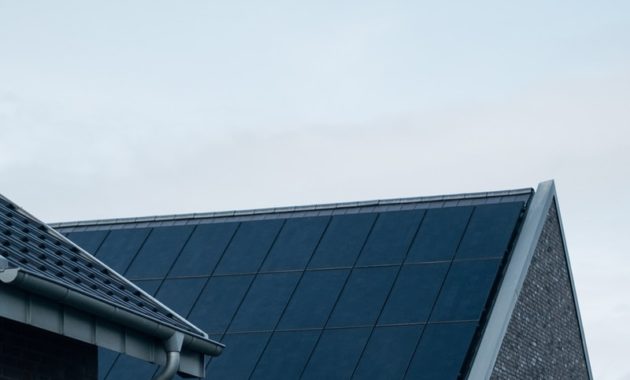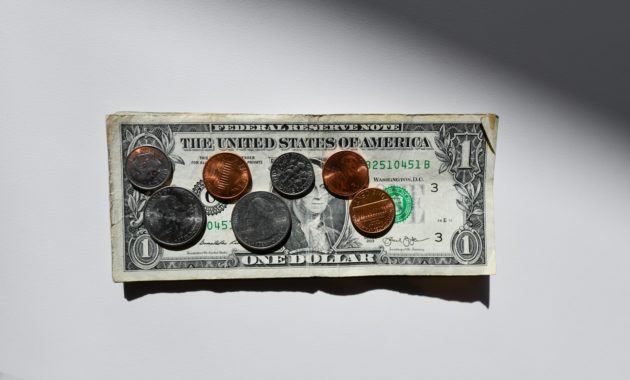
Solar water heating systems use solar panels to collect heat from the sun, which is then used to heat water stored in a hot water cylinder.
This system can be installed on your roof or solar panels can be put outside of your house on a pole with pipes running into it.
These solar thermal systems work well because solar energy is free and doesn’t pollute the environment like other types of fuel sources do.
Solar thermal systems are an environmentally friendly way to help conserve natural resources and reduce greenhouse gasses that contribute to global warming.
Table of Contents
- How do solar hot water heating systems work?
- Types of solar thermal panels
- Benefits of solar water heating
- What are the disadvantages?
- Is solar water heating right for your home?
- Costs, savings and financial support
- Choosing an installer and system
- Conclusion
How do solar hot water heating systems work?
These collectors are filled with a special fluid, typically water and glycol (antifreeze), which absorb heat from the sun to warm up water stored in a hot water tank.
If the water is not hot enough, you can use a boiler or an immersion heater as a backup.
There are two types of solar water heating panels: Evacuated tubes mounted on roof tiles, and Flat Plate Collectors mounted on the ground.
Solar water heating systems can be either passive or active based on how they work to collect heat from sunlight (passive doesn’t require any electricity, while active requires a pump that circulates fluid).
Active solar collectors are more efficient at collecting and storing the sun’s energy than passive ones because of their insulation factor but are also more complicated to install.
The best place for a solar water heating system is in sunny areas, but they can also work well even if there isn’t any direct sunlight (for example on the south-facing side of your house).
There are two types of systems: closed-loop and open-loop. Open loops typically require more maintenance, while closed loops are less expensive.
Types of solar thermal panels

There are two types of water heating panels for solar power systems – flat plates and evacuated tubes.
Evacuated tubes are fitted to your roof.
Flat plate systems may be fitted on the roof or embedded into it.
Evacuated tubes are better than flat plates because they have a larger surface area and can absorb more heat from the sun.
Another advantage of evacuated tubes is that their system is closed, so you won’t need to worry about leaks like with flat plate systems (open loop).
This type needs an additional collector pump, which will cost more, but if you have a closed-loop system it will save on maintenance.
Benefits of solar water heating

The hot water is always available during the winter and summer months, but you will need to heat it with a boiler or electric immersion heater.
The less energy used to heat water, the lower your heating bills will be.
Solar hot water is a renewable heating system with the potential to decrease your carbon footprint.
This type of system doesn’t use any electricity or other fuels.
You can heat up and store the hot water during the day for later in the evening, so you won’t need to rely on your electric boiler as much.
The solar panels are very durable and will last a long time even with exposure to sunlight year-round.
The average size of a solar water heating system is up to 100 square feet.
The potential savings with this type of heat source can range from 30% – 70%.
Hot water throughout the year
The system is capable of heating water year-round even in the extremes of winter, but use an immersion heater to heat the colder liquid.
It is important to use the right type of insulation for your system. This will help reduce heat loss and save energy.
Reduced energy bills
Hot water typically costs money, but sunlight is free to use and doesn’t produce greenhouse gasses that contribute to global warming.
Solar water heating systems are environmentally friendly and can provide hot water throughout the year.
It’s important to choose a system appropriate for your needs, so you don’t waste any valuable space or money on features that won’t make sense in your situation.
In addition, you will need to consider the surrounding area and how much sunlight it gets.
Lower carbon footprint
Turning to solar power for hot water can reduce your carbon dioxide emissions and save you money on your heating costs.
Solar water heating panels can be either passive or active, but active systems are more efficient at collecting heat from the sun and also require a pump for circulating fluid.
What are the disadvantages?
As mentioned before, installing an active collector requires more work and time than passive collectors.
Another disadvantage is that many people who use solar water heating systems need to invest in a backup heat source such as an immersion heater due to their lower efficiency.
Active collectors require electricity, so if the panels are not receiving enough sunlight during the day, they won’t be able to collect and store any energy for later use at night.
Some people may also find them too expensive to install.
The main disadvantages of these systems are their higher cost and the need for an additional backup heat source.
Although they may be more expensive at installation, solar water heating panels have a long lifespan with no maintenance costs so they can pay off in the long term.
Is solar water heating right for your home?
To tell if solar water heating is right for you, there are a few key questions to consider:
Do you have a sunny place to put solar panels?
The system will be able to work best when placed in a southern, east, or west-facing.
Do you have the space for solar panels?
Active systems require more room because they need an additional collector pump and other components. Passive collectors only use tubes that are already installed on your roof so won’t take up any extra space.
Are you willing to pay more upfront for a solar water heating system?
Active systems require an additional investment in the form of solar panels and pumps.
Do you have space for a larger, or an extra, hot water cylinder?
Solar water heating systems work best when you have more than one hot water cylinder.
Are you willing to invest in a backup heat source?
This is typically an immersion heater, but the type of system doesn’t matter as long as it’s capable of producing enough energy for your needs while also being able to store any unused solar power at night.
If you answered yes to the questions above, then solar water heating is likely a good option for your home!
Costs, savings and financial support

Solar water heating systems can cost anywhere from $15,000-$35,000 depending on the size of your home.
If you have a lower income and want to install solar panels for hot water but don’t think it’s financially feasible, there are some options in place that may help make this possible. For example:
-UK: The UK’s Department of Energy & Climate Change offers subsidies for as much as 50% towards the cost of solar water heating panels.
-USA: Several organizations offer loans and grants to help people afford their systems, such as GRID Alternatives or Solar One Colorado.
For more information on available government incentives for installing solar water heating, visit the Department of Energy and Climate Change in the UK or contact your local utility company.
Efficiency and savings
Solar panels for hot water are more efficient than other heating methods because they don’t need to rely on fuel like natural gas or propane.
If you’re curious about how much money solar panels can save you on your utility bill, try using an electricity usage calculator to see how much you save.
Solar panels for hot water are a great investment because they have long lifespans and offer consistent savings over time.
Choosing an installer and system
An experienced installer can help you choose the best solar water heating system for your home.
They’ll be able to measure how much area you have available and will know how many panels or collectors of each type are necessary, as well as what size hot water cylinders you need based on your family’s needs.
They must install the panels correctly to ensure they work as efficiently and effectively as possible.
Once installed, an installer will be able to show you how to maintain your system so that it continues heating water for years without needing any maintenance!
For more information on solar water heaters or if you have questions about installing a system in your home, contact us at https://carbonlow.co.uk/contact-us/
Could solar water heating work for you?
Solar water heaters are an option for those looking to save on their energy bill.
They work best in areas with lots of suns and have the ability to substantially reduce your utility costs while also reducing greenhouse gas emissions. Solar panels for hot water can be a good investment because they offer long-lasting savings over time, but they do come with a higher upfront cost than other heating methods.
Is renewable heat right for your home?
Install a solar water heating system as an alternative to fossil fuel-powered systems.
To reach net-zero goals it is necessary to reduce the amount of fossil fuel-generated heating in our homes.
If you want to try and reduce your emissions, solar water heating is the best solution for all of these reasons!
Conclusion
Solar water heating is a great way to save money on your utility bills.
When you invest in solar hot water, though, make sure the system will work for your home and needs before signing any contracts or making an investment.
There are many different types of systems available with varying costs and advantages so you must do some research beforehand.